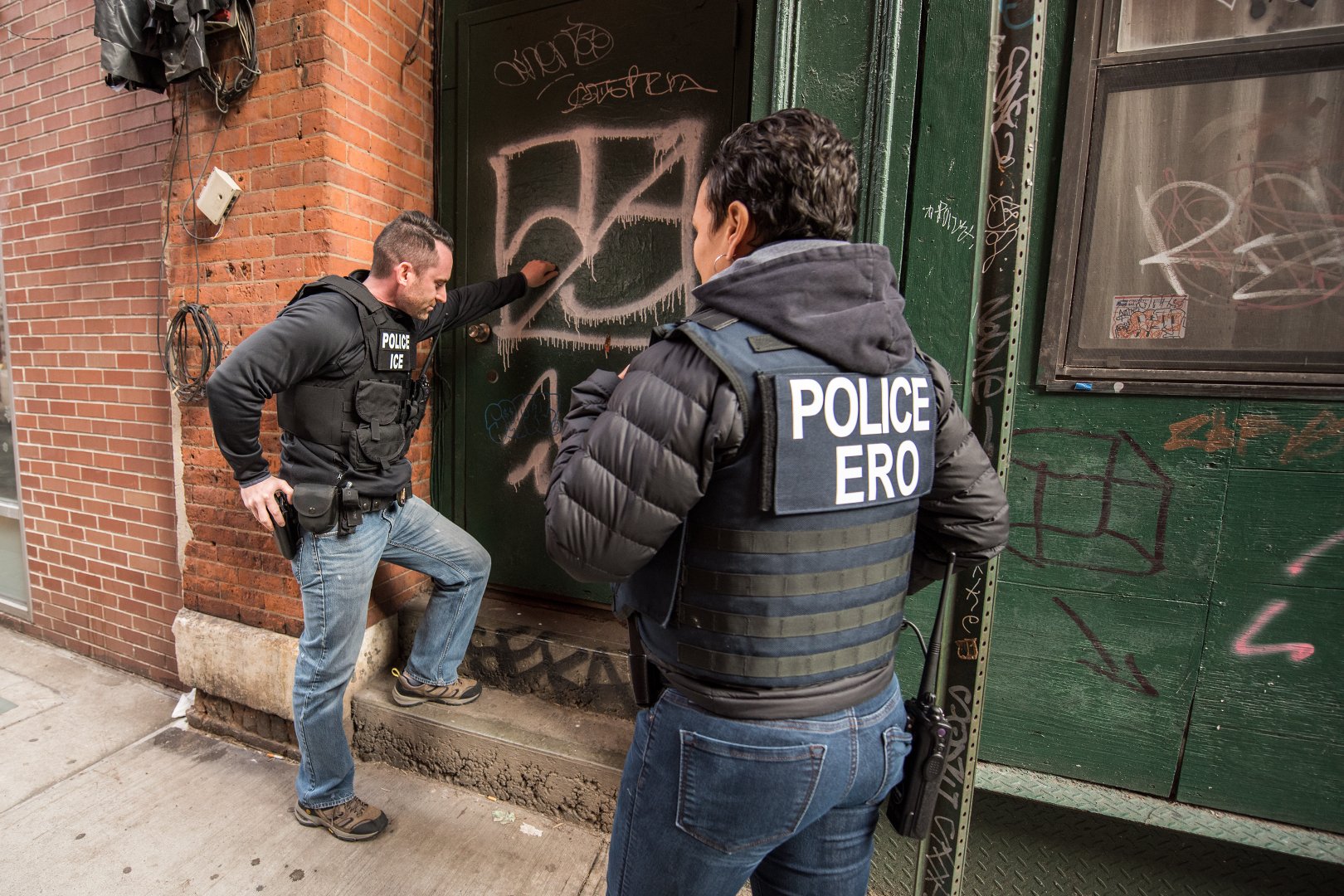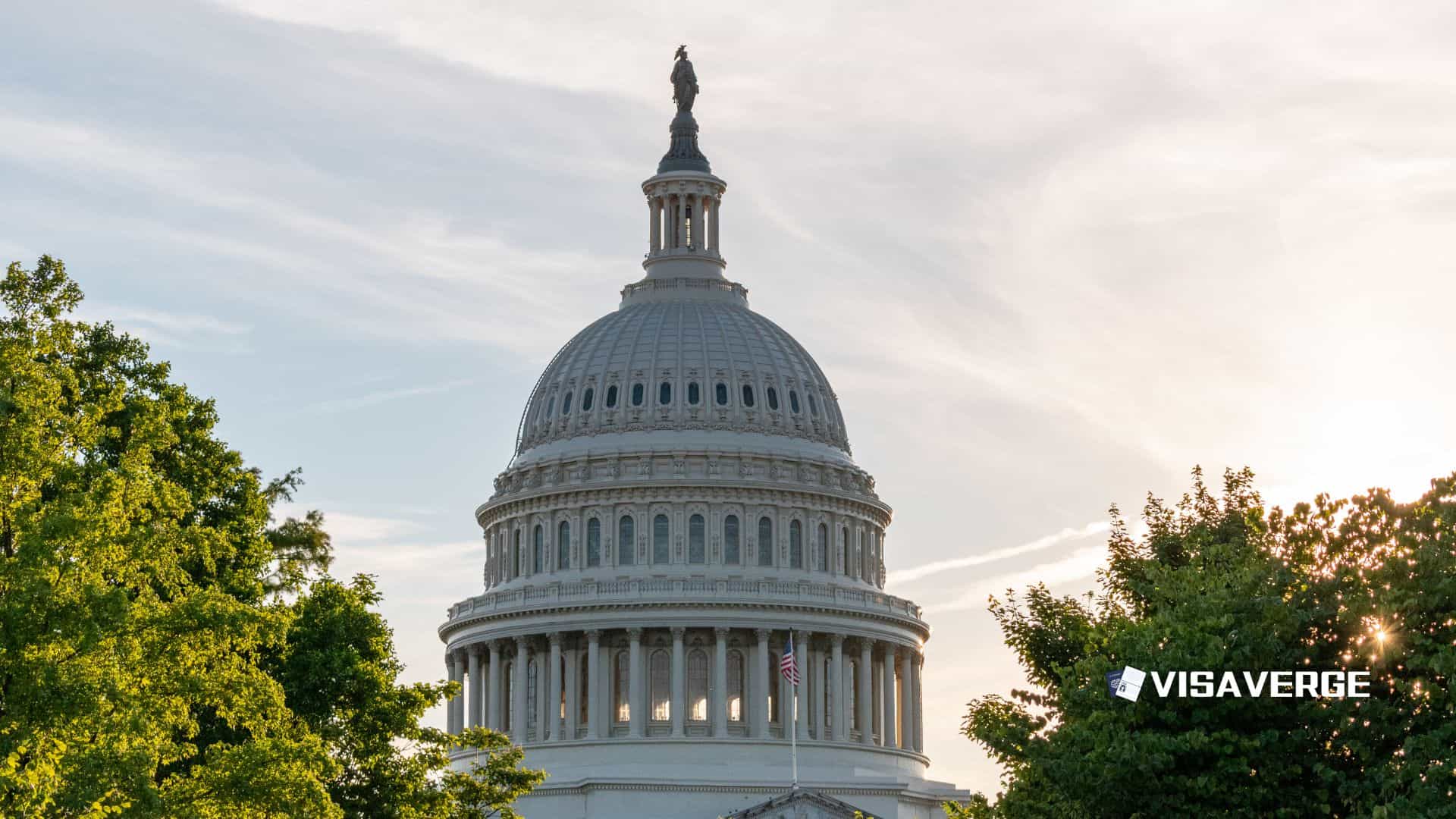Key Takeaways
• Judge Dugan was indicted May 13, 2025, for helping Eduardo Flores-Ruiz evade ICE agents in her courtroom.
• Charges include misdemeanor concealing to avoid arrest and felony obstruction of justice, sparking national debate on judicial independence.
• Over 150 judges and civil rights groups warn the prosecution may threaten judicial independence and immigrants’ willingness to appear in court.
Milwaukee County Circuit Judge Hannah Dugan was arrested in April 2025 and later indicted by a federal grand jury on May 13, 2025. She now faces charges of concealing an individual to prevent arrest, which is a misdemeanor, and obstruction of justice, which is a felony. The case centers on the judge’s alleged actions to help Eduardo Flores-Ruiz, a man in her courtroom, avoid arrest by Immigration and Customs Enforcement (ICE) agents. This situation has caught the attention of legal experts, civil rights groups, and many members of the public, raising important questions about immigration law, how courts work, and the balance between federal and state power.
What Happened in Judge Dugan’s Courtroom

The events in question took place on April 18, 2025, in Milwaukee County, Wisconsin. According to federal authorities, Wisconsin Judge Hannah Dugan allegedly escorted Eduardo Flores-Ruiz and his lawyer out of her courtroom using a back jury door. Immigration and Customs Enforcement agents were waiting in the courthouse, planning to arrest Flores-Ruiz on immigration-related grounds. Prosecutors claim Judge Dugan helped them leave out a back exit specifically to avoid the agents and to keep Flores-Ruiz from being taken into ICE custody.
Within weeks of this event, a federal grand jury reviewed the situation and decided there was enough evidence to charge Judge Dugan. She was then indicted on two counts: one for concealing an individual to prevent arrest, and another for obstruction of justice. The charges were announced publicly on May 13, 2025, and they quickly became the subject of debate and controversy across Wisconsin and the rest of the United States 🇺🇸.
Background: Roles and Responsibilities in the Courtroom
Judges in the United States 🇺🇸 are tasked with making sure courtrooms remain orderly and lawful places. They oversee hearings and trials, rule on what evidence is allowed, and make important legal decisions that can shape people’s lives. However, their responsibilities also mean that sometimes they have to deal with federal immigration authorities or law enforcement agencies like Immigration and Customs Enforcement.
In this case, prosecutors say that by ushering Eduardo Flores-Ruiz and his attorney out through a private door, Wisconsin Judge Hannah Dugan stepped outside her normal courtroom role and actively prevented federal agents from performing their duties. This forms the basis for the federal charges against her.
Legal Response and Arguments
After her arrest and indictment, Wisconsin Judge Hannah Dugan’s attorneys moved quickly to respond. On May 14, 2025, the day after the indictment, her legal team filed a motion to dismiss the charges. They argued two main points:
- Judicial Immunity: Her lawyers said that judges are protected from being prosecuted or sued for actions taken as a part of their official duties. This legal protection is called “judicial immunity” and is meant to ensure that judges are not afraid to make difficult decisions.
- Wisconsin’s Rights: Her attorneys also argued that the arrest and prosecution go against Wisconsin’s sovereignty, meaning the state’s right to operate its own court system without interference from the federal government. They claimed this case crosses a line that separates federal and state powers.
The court has not yet ruled on this motion, and the outcome is expected to set an important precedent about how much protection judges have when their actions stand at odds with federal law.
No Evidence of Fundraising for Legal Defense
As reported by VisaVerge.com and based on all available public information, there is no evidence or public statement that Wisconsin Judge Hannah Dugan is seeking donations or starting any fundraising campaigns for her legal defense. Her current legal team is actively defending her through formal court motions and legal filings. Any rumors or speculation about crowdfunding for her attorneys are not supported by the facts currently available.
Reaction from the Judicial and Advocacy Community
This case has drawn many strong responses from the legal community. More than 150 former state and federal judges signed a letter that criticizes the arrest of Judge Dugan. In their letter, these legal leaders said the prosecution could intimidate judges and prevent them from acting freely without fear of criminal charges. They worry that this situation might make other judges nervous, especially when their duties involve sensitive immigration or law enforcement topics.
Alongside the judges’ letter, several civil liberties and voting rights groups in Wisconsin also spoke out. They released a joint statement saying they are worried about what the arrest means for the independence of the judiciary. These groups say that judges must be able to make decisions based on the law―and not out of fear of being prosecuted by the federal government.
Wisconsin, Immigration Law, and Federal Authority
The story of Wisconsin Judge Hannah Dugan does not take place in a vacuum. Instead, it highlights some of the biggest questions about immigration and the laws around how federal and state governments should interact.
- Federal Immigration Authority: In the United States 🇺🇸, immigration laws are made and enforced by the federal government. This means that national agencies like Immigration and Customs Enforcement have the authority to detain and deport people who may be in the country unlawfully or who face other immigration issues.
- State and Local Courts: At the same time, courtrooms in states like Wisconsin deal every day with cases involving people from different backgrounds, including immigrants. Judges often see cases that may attract federal interest, especially when people in the court system may be subject to ICE action.
This sometimes puts local courts and federal agencies on a collision course. If a judge believes that someone’s rights in their courtroom are at risk, or that law enforcement actions could disrupt court proceedings, they face hard choices.
Broader Trends and Political Tensions
The case involving Judge Dugan and Eduardo Flores-Ruiz comes against a nationwide background of debate over immigration enforcement and the rights of non-citizens in the United States 🇺🇸. In recent years, clashes between federal immigration authorities and local governments have increased. Some cities and states, often called “sanctuary” jurisdictions, have passed laws or policies that limit cooperation with ICE. In Wisconsin, the issue is especially visible in urban centers like Milwaukee, where many residents are immigrants or come from mixed-status families.
Though Judge Dugan has not spoken publicly about her specific actions, the situation reflects larger themes around whether local officials should help, ignore, or resist federal immigration agents inside courthouses and other official settings. Both sides have strong opinions:
- Supporters of the Charges: People who support the prosecution of Judge Dugan argue that no one should be above the law, not even judges. They say that interfering with federal law enforcement undermines public safety and the legal system as a whole.
- Critics of the Charges: Opponents, including many judges and civil liberties groups, say the charges represent federal overreach and could threaten judicial independence. They argue that judges must sometimes act boldly to protect people’s rights and to ensure their courts run smoothly.
What’s Next for the Case
As the legal case goes forward, several important questions remain. The motion to dismiss is now before the court, and the judge handling the matter will need to decide:
- Does judicial immunity cover the actions Wisconsin Judge Hannah Dugan is accused of taking?
- Did the federal government overstep its role by arresting and charging a state judge for actions inside her own courtroom?
- What does the law say about the responsibility of judges to cooperate with Immigration and Customs Enforcement, especially when they believe a person’s rights or safety may be at stake?
It is not yet clear when the court will rule on these questions, or if the case will move forward to a trial.
About the Key Figures
Wisconsin Judge Hannah Dugan: A sitting judge in Milwaukee County, known for handling many different types of cases in her courtroom. Until these charges, she had not been publicly connected to any accusations of wrongdoing.
Eduardo Flores-Ruiz: The man at the center of the case, for whom Judge Dugan allegedly opened a back door to avoid Immigration and Customs Enforcement agents. Little is known from public records about Flores-Ruiz’s background, but the events make clear he was a target for federal immigration enforcement.
Immigration and Customs Enforcement (ICE): The main federal agency tasked with finding, detaining, and removing non-citizens who are in the United States 🇺🇸 without permission or in violation of immigration laws. They are often present at courthouses across the country, waiting to detain people who might be released from state custody.
Effects on Immigrants, Courts, and the Public
The impact of this case can be seen on several groups:
- Immigrants: Many immigrants already fear going to court for any reason, worrying that Immigration and Customs Enforcement agents might arrest them outside or inside a courthouse. This case might increase that fear, making it less likely for victims or witnesses to come forward.
- Judges and Courts: If judges feel at risk of arrest for decisions they make in the courtroom, they may become less willing to stand up for people’s rights or to create fair procedures. Some worry this could make the justice system less fair overall.
- Federal and State Relations: The outcome may change how federal and state governments work together in law enforcement settings, especially around immigration. It could set rules that apply to courts nationwide, not just in Wisconsin.
Official Government Sources and Further Reading
For people who want to know more about how immigration enforcement works and what rules federal agencies like Immigration and Customs Enforcement have to follow, the Department of Homeland Security’s ICE website provides detailed information about their responsibilities and policies.
Looking Ahead
This story continues to develop, and the legal questions involved are complicated. The results will not only affect Wisconsin Judge Hannah Dugan and Eduardo Flores-Ruiz, but also thousands of people—judges, immigrants, and families—across the United States 🇺🇸. While the courts decide the issues, public discussion is likely to stay strong, especially as Americans pay close attention to how immigration law is enforced and how much freedom judges really have.
As newer facts come out and courts rule on the motions, more clarity will come about the boundaries between federal and state power, the duties of judges, and the rights of people who appear in court. VisaVerge.com will keep reporting on the issue, offering updates on the latest legal decisions and impacts on the wider community.
In summary, the charges against Wisconsin Judge Hannah Dugan show the hard choices faced by judges and federal officials in today’s legal environment. They also remind everyone that immigration law affects real people and that the rules governing how courts, police, and federal agencies work together are always under review. Readers who want to keep up with important changes to immigration enforcement and court procedures should follow trusted sources and pay attention to official government announcements as this major case continues to unfold.
Learn Today
Judicial Immunity → A legal principle protecting judges from lawsuits or prosecution for actions made during their official judicial duties.
Obstruction of Justice → A felony charge for intentionally interfering with the work or duties of law enforcement or the courts.
Federal Grand Jury → A group of citizens who review evidence and decide if serious federal criminal charges should be brought.
Misdemeanor → A less serious criminal offense than a felony, often punishable by fines or short jail time.
Immigration and Customs Enforcement (ICE) → A federal agency responsible for enforcing immigration laws, detaining, and removing non-citizens from the United States.
This Article in a Nutshell
Wisconsin Judge Hannah Dugan faces federal charges after allegedly helping Eduardo Flores-Ruiz evade ICE arrest from her courtroom. The case raises crucial questions about judicial independence, courtroom authority, and federal-state boundaries. The motion to dismiss, citing judicial immunity, could establish a landmark precedent affecting immigration law and courthouse procedures nationwide.
— By VisaVerge.com
Read more:
• Dongquan ‘Derek’ Jin Indicted in Asylum Fraud Scheme
• Second Man Indicted on Human Smuggling Charges in Jagadish Patel Indian Family’s Death
• Indian Men Indicted for $8.5 Million Airbnb and Vrbo Vacation Rental Scam in Wire Fraud Scheme
• Federal Grand Jury Hits Wisconsin Judge in Immigration Case
• Judge Hannah Dugan Arrested for Shielding Immigrant












